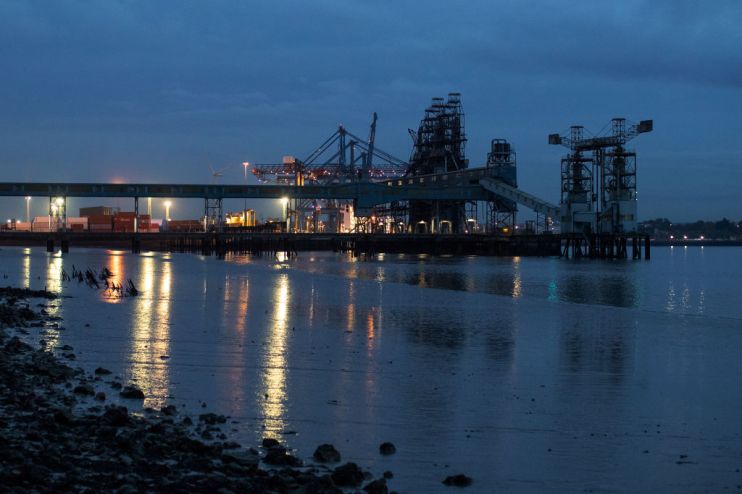Thames freeport proposal gains weight with new partnership

A proposal to develop a new freeport zone on the Thames Estuary has been bolstered today by the proposed inclusion of the 700-acre Thames Enterprise Park.
The new partner will expand the current freeport proposal, which comprises the ports of Tilbury and Thames Gateway, as well as Ford’s Dagenham plant, by 70 per cent.
The Thames Enterprise Park, located on the remains of a former Shell oil refinery, is seeking to become a local hub for manufacturing and clean energy.
Around 4,500 jobs in one of the most deprived areas of the country will be created by the regeneration project, it is hoped.
Stuart Wallace from the Thames Freeport bid consortium said that adding the park to the proposal take the bid “up a gear”.
“Size matters more than ever for UK plc. A Thames Freeport ability to deliver transformational gains across trade, investment, jobs, levelling up and regeneration is substantial and just got even bigger.
“By boosting the bid with Thames Enterprise Park, we are taking the potential impact of our bid up a gear, which is great news for everyone who wants to see the region succeed and thrive.”
Around 30 ports and airports are expected to bid to become one of the 10 special economic zones proposed by the Treasury.
Before the Open: Get the jump on the markets with our early morning newsletter
It is hoped that the sites, which enjoy a number of tax-free advantages, can hope to bolster the UK’s appeal as an investment destination post Brexit.
The envoy for the Thames Estuary told City A.M. that situating one such zone in the region could be “transformative” for the local area.
What are freeports?
Free ports are specially designated economic zones where normal tax and customs rules do not apply.
All forms of port are included under the status – ferry ports, airports, and rail ports.
Read more: What are free ports and what are the economic benefits?
In such ports, goods can be imported, manufactured, and exported again without facing standard tariffs or requiring normal customs checks.
Companies which operate within free ports do so with the benefit of paying a lower rate of VAT tax and employment tax, as well as relief when it comes to purchasing land.